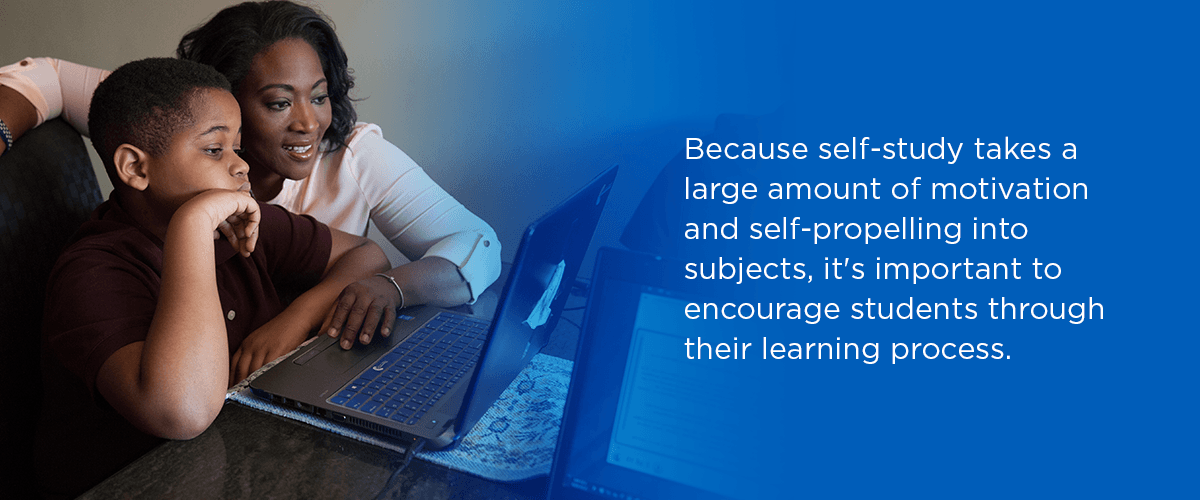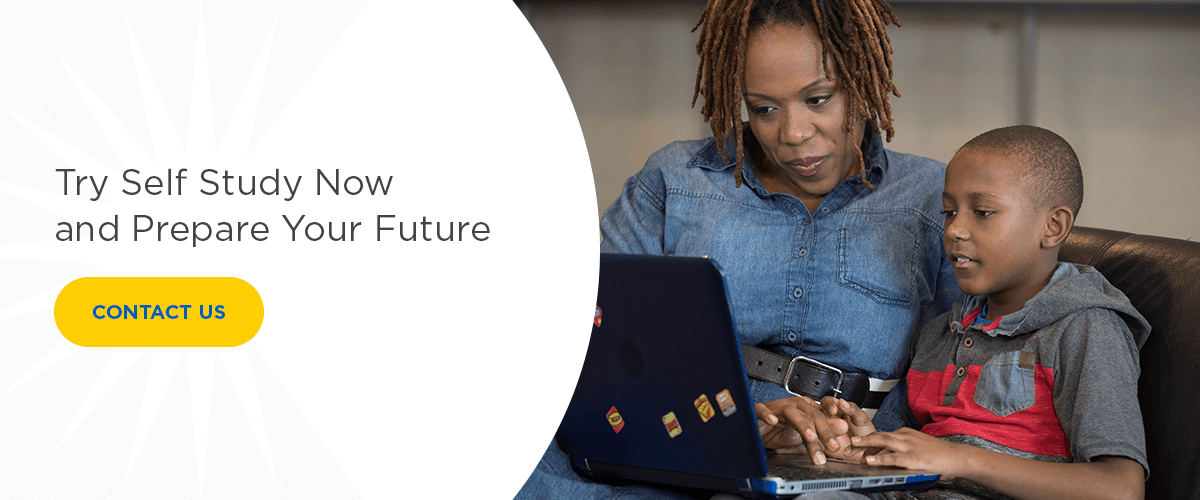There are many ways to study and take courses, ranging from online classes to traditional in-person classroom study. Different teachers will have different ways of using technology and setting up their course studies, and each person reacts differently to them. Being able to adapt and receive information from many resources is an essential skill for students.
Therefore it’s crucial to learn the benefits of self-study and get to know different self-study methods. When you’re self-studying, you can enhance your learning potential by ingesting more information than teachers provide. You’ll be able to forge your own path in your studies and discover interests that you weren’t previously aware of. Read below to learn more about the benefits of self-study and how to execute practical self-study for yourself.
What Is Self Study?
Self-study is when you’re studying alone, without a teacher providing you a pathway to gain information. You can learn at your own pace, dive deeper into categories that interest you more, and enjoy what you’re learning. When you have fun learning about subjects that interest you, you’re more likely to retain the information than when it’s part of a curriculum that you’re forced to follow. Everyone has a different learning process, and self-study can enhance students’ learning capabilities by applying the best techniques for each individual.
When students have control over how and what they’re learning beyond the primary textbooks, it creates a sense of wonder and self-accomplishment. When a student follows teacher-guided study routes, it’s much harder to achieve that feeling. Eagerly chasing after the information to find the answers will also increase how well a student studies and create a more refined set of learning skills. Increased problem-solving skills, expanded study awareness, the capacity to question and investigate a specific topic, and the ability to research further are excellent factors that come with self-study.
Self-studying also leads to the development of discipline that helps drive the student’s motivation and thirst for knowledge. The traditional classroom setting offers many distractions and limitations to gaining knowledge and learning beyond the basic lessons. While some teachers will help you start looking for additional information for self-studying subjects independently, you’ll still be working outside of the classroom, away from what the majority is learning.

Types of Self Study Methods
Many self-studying methods encourage growth in learning and focus on increasing the excitement of gaining knowledge. Because self-study takes a large amount of motivation and self-propelling into subjects, it’s important to encourage students through their learning process.
- Talking: Conversations are an essential factor in developing excitement about what a student is studying. Asking students to explain what they’re learning, why, and for some crucial facts encourages them to learn more and enjoy studying different subjects so they can share their knowledge.
- Reading: Reading books and articles on an array of subjects a student likes or is learning about gives multiple views on the topic with more information than focusing on a single source. Reading helps students welcome new concepts into the learning experience and increase their ability to look at different ideas.
- Visuals: Watching videos play a vital role in keeping students engaged and entertained. There are many videos on every subject imaginable and tutorials on different learning processes and self-study techniques. Students can learn scientific methods, languages, historical events, and much more while utilizing videos in their learning process. Students can even find motivational videos that help keep them focused on pursuing knowledge and congratulate them on their self-study methods.
- Games: Educational games can improve many aspects of the brain and how it processes thoughts. With the array of apps available on many devices, there’s no shortage of educational games that students and non-students will enjoy while learning different subjects. Some of these apps enhance learning capabilities for math, writing, history, and more. There are also educational games that are not electronic. Many board games exist that teach students diverse information and skill sets, such as logic and strategic thinking.
- Practice questions: Work through practice questions to help the student retain the information they’ve learned and support the skills they’re utilizing. Making the practice questions fun and rewarding helps create a space where students enjoy being tested and do their best. Having contests, rewards, using games, and other techniques are a few fantastic ways to achieve a fun environment for testing their knowledge.
The Benefits of Self Study
With so many benefits of self-study, it’s clear that all students should be encouraged to try it for themselves and find a method that works for them. When students are exploring topics on their own, they have the freedom to dive deeper into the parts they most enjoy and learn about the subjects on a grander scale. Having the ability to self-study gives the student the ability to think seriously about issues and ask questions. Improved retention is a vital outcome of self-study.
Discovery is an essential value in life, and having the ability to discover through self-study and problem-solving on a deeper level will provide students with the critical tools of discovery and execution. Self-study allows students to take their curiosity to the next level and push the bar of information about their studies. Because the student is learning at their own pace and tackling the more profound subjects on a larger scale, their self-esteem grows with each accomplishment.
Helping students become involved in self-studying is a great way to encourage them to strive harder and go further in their studies. They’ll figure out what they like most in life and which path they’re interested in following. It’s all about opening the doors to students and allowing them to take learning into their own hands, so they can focus on what matters most to them.
Commonwealth Charter Academy and Self Study
Commonwealth Charter Academy (CCA) helps encourage self-study through collaboration with the students and parents themselves to create a unique curated experience for each student. Together, they’ll decide which concepts are most interesting to the student, find the best courses to take, and build a program in which the student will excel. CCA provides study tips and strategies to prepare for crucial exams and the PSSA (Pennsylvania System of School Assessments). CCA’s innovative methods ensure students enjoy learning and strive hard to gain the knowledge they’ll need through life.
Try Self Study Now and Prepare Your Future
CCA encourages students to take the self-study approach to create a learning environment where they’ll find enjoyment, knowledge, and success. If you want to take the first steps towards your future, contact CCA today to learn more about the self-study techniques your student can employ.




